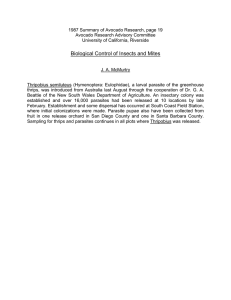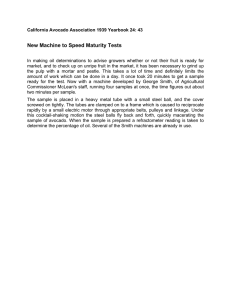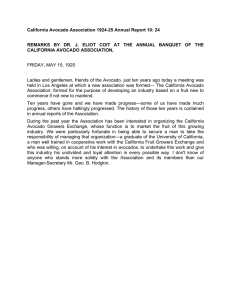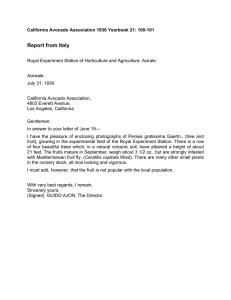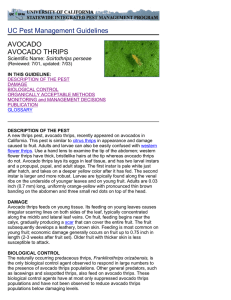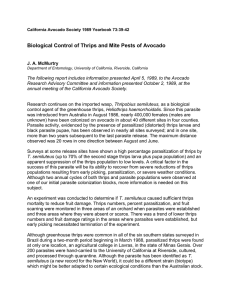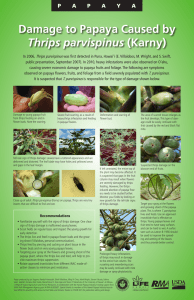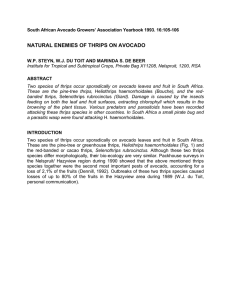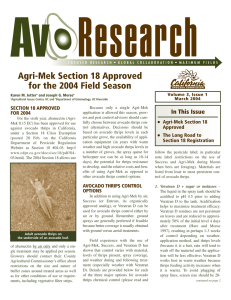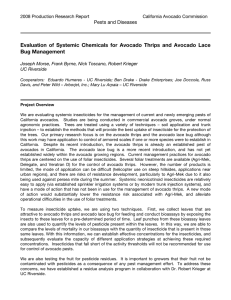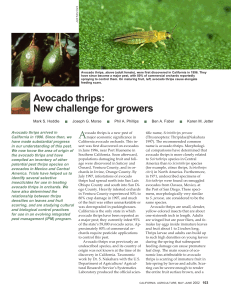AVOCADO THRIPS AND THEIR NATURAL ENEMIES
advertisement
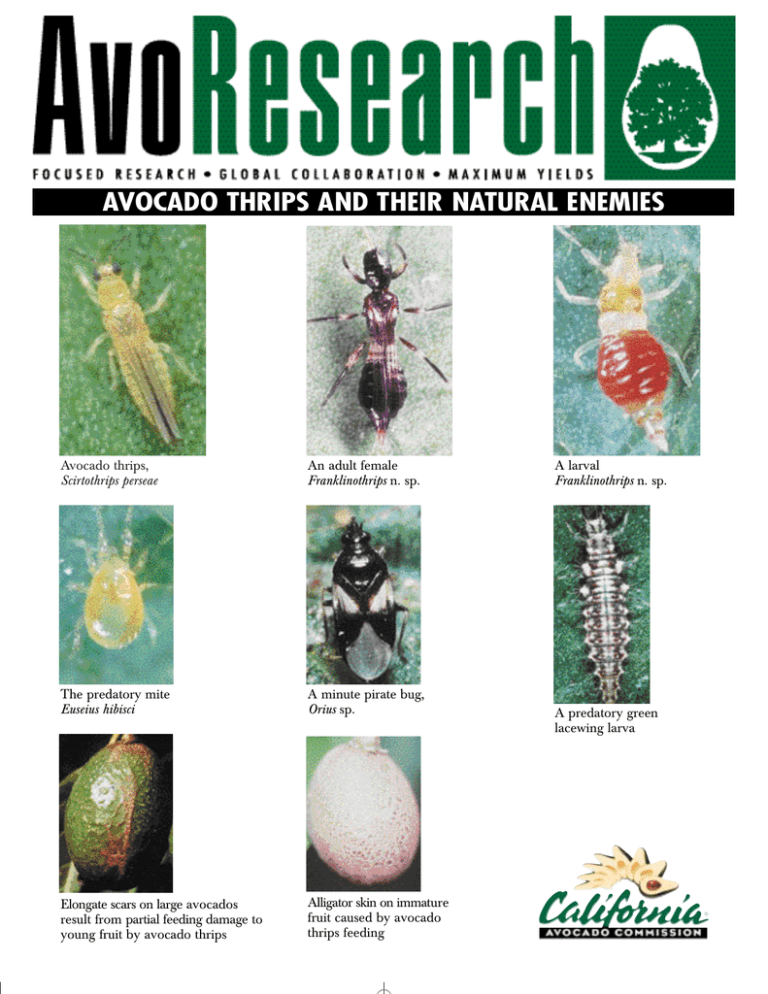
AVOCADO THRIPS AND THEIR NATURAL ENEMIES Avocado thrips, Scirtothrips perseae An adult female Franklinothrips n. sp. The predatory mite Euseius hibisci A minute pirate bug, Orius sp. Elongate scars on large avocados result from partial feeding damage to young fruit by avocado thrips Alligator skin on immature fruit caused by avocado thrips feeding A larval Franklinothrips n. sp. A predatory green lacewing larva Avocado Thrips (Scirtothrips perseae Nakahara [Thysanoptera: Thripidae]) Life Cycle BIOLOGY OF AVOCADO THRIPS Avocado thrips has six distinct life stages. Females lay eggs inside young leaves or fruit. Two larval stages subsequently develop and feed on young leaves or fruit. The two pupal stages are non-feeding and complete pupation development either in cracks or trees or in leaf duff below trees. Adults, which emerge from the pupal stage, feed on leaves and fruit, and can fly. Laboratory studies have indicated that avocado thrips larvae and adults exhibit highest survivorship, longevity and fecundity at moderately cool temperatures (67-76ºF). Moderately hot temperatures (86ºF) cause high larval mortality and reduced adult longevity.
